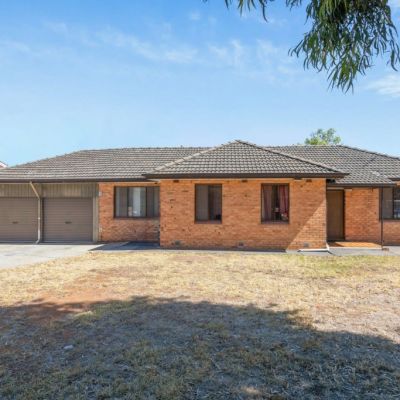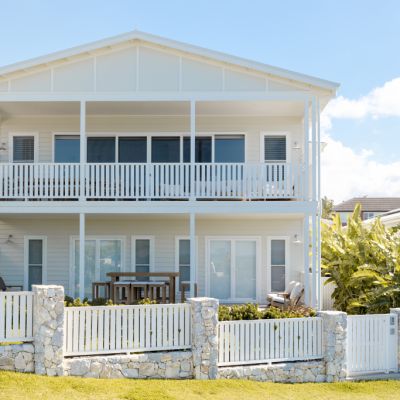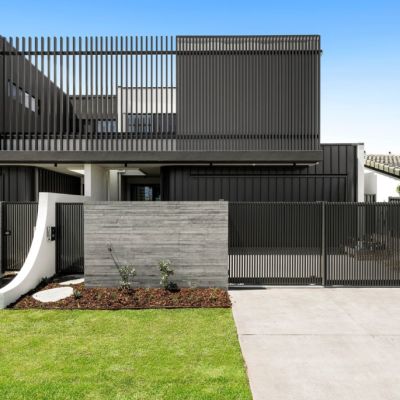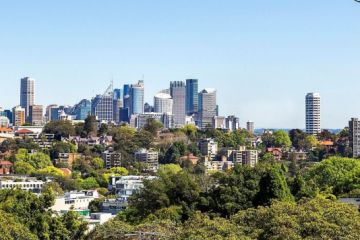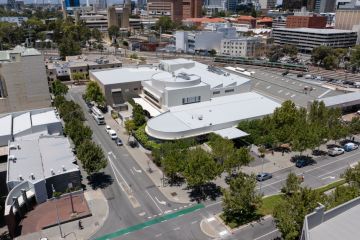Gifts from $50k to $1m the norm: How home deposits soared to record levels
The average home deposit has reached record levels of more than 32 per cent, showing that buying property has become unaffordable for the average Australian, experts say.
Buyers with the highest deposits ever are taking out the smallest loans as a proportion of the purchase price, analysis from investment bank Jarden shows.

The value of loans granted hit 67.6 per cent of all home sales in March, and buyers could fund the rest without needing the bank’s help.
A standard first home purchase would take out a loan for 80 per cent, and before the GFC buyers were borrowing almost 94 per cent of the property value. The average from 2016 to 2022 was about 78 per cent.
Raising enough money to afford a deposit is considered one of the biggest hurdles to home ownership.
“What we’re seeing is the people who are willing and able to buy housing in this market are skewing to higher wealth,” Jarden chief economist Carlos Cacho said. “People are not able to borrow as much as they were before so they have to fund more of their purchases with cash on average.
“The buyers in the current market are less constrained by borrowing capacity and they’re less reliant on funds from a bank.”
Rising house prices in a high-interest rate environment have perplexed economists because prices and borrowing capacities have typically been closely linked.
The Reserve Bank on Tuesday held the cash rate steady at 4.35 per cent, where it has been since November after the steepest hiking cycle in a generation. Property prices fell at the start of the cycle but later rebounded as wealthier buyers stepped into the market.
Director and mortgage broker at 40 Forty Finance Will Unkles said it was common for clients to need assistance from their parents to afford a deposit.
“It does show what I’d call a two-speed buyer pool. One with family assistance and one without,” he said. “We find that most clients that get help from mum and dad, it’s supplementing their savings.
“As to how much, it can vary wildly, anywhere from $50,000 to $1 million.”
Unkles said it was usually mutually beneficial for parents to pass on inheritance early.
“Most parents, when choosing to do this, see this as an early transfer of generational wealth, which enables their children to live close to them and maintain contact with their grandchildren and financially assist the moment that will have the greatest impact on their grandchildren’s quality of life,” he said.
“If grandma lives in Hawthorn and you can buy in Ringwood and that’s too far for grandma to get to, they’d rather give you one million bucks so you can live next door.”
Cacho said home ownership was becoming further out of reach for most Australians.
“One thing that a lot of economists are grappling with is how the 20-plus-year relationship with borrowing power and house prices has broken down. It leaves you with a situation where it’s not clear what the driver of property will be in the long term,” he said.
“You need to change your view that it’s based on what the average household … can afford. For an average income household in Australia today they cannot afford the median house any more.
“The other implication is clearly we’re moving into an environment where it’s going to come down to the circumstances that you’re born into … as opposed to how hard you work and how much you earn.”
Impact Economics and Policy lead economist Dr Angela Jackson agreed the trend was concerning.
“If you’re a first home buyer and you’re actually trying to save it yourself, it becomes increasingly difficult,” she said. “And that’s why people are renting for longer. Without that intergenerational support, it’s much harder to enter the property market for the first time.”
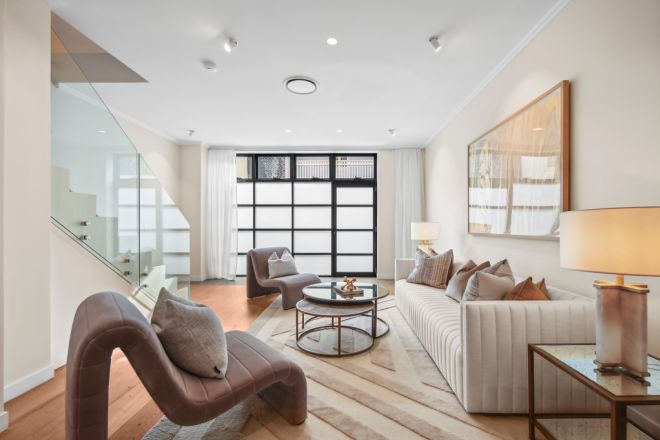
Jackson said owner occupiers and investors, along with the rich, would be driving the average size of deposits.
Cacho said the figure added to a growing body of evidence that wealthy buyers were keeping house prices high.
“It’s much the same as what we’re seeing in other data, CBA data showing we’re skewing to wealthier buyers, PEXA’s data on cash buyers.”
Unkles said wealthy buyers continuing to drive up prices showed the depth of the challenge governments faced to fix housing affordability.
“If I was in the position where I was wealthy enough to help my children into property, I would, and I don’t think you can stop it,” he said. “But it does show the divide between the haves and the have nots is going to get wider.
“And philosophically, I don’t want to live in a city or country where those who can buy property is decided by the birth certificate you’ve got. If we want home ownership to be held up as almost an Australian goal … we need some pretty significant structural reform.”
We recommend
We thought you might like
States
Capital Cities
Capital Cities - Rentals
Popular Areas
Allhomes
More
